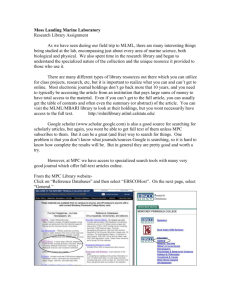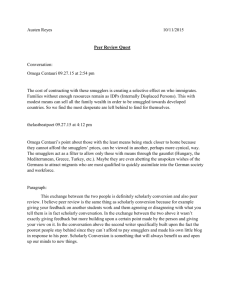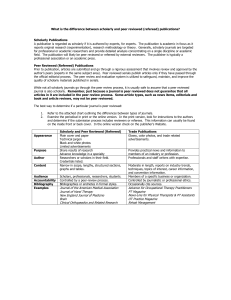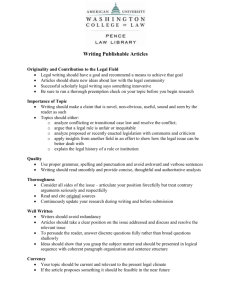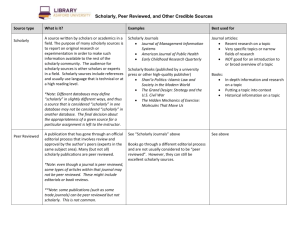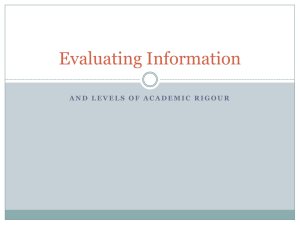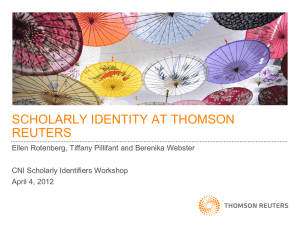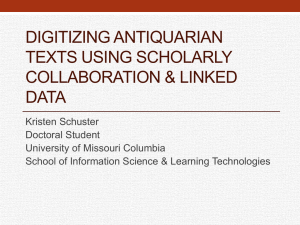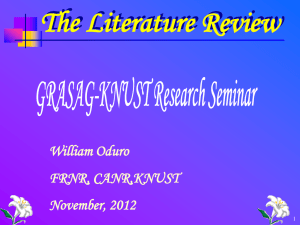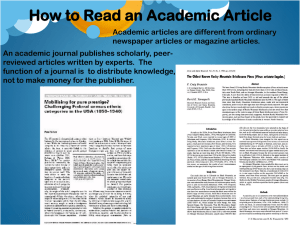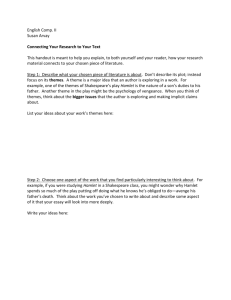Thinking Critically about Information Reliability
advertisement
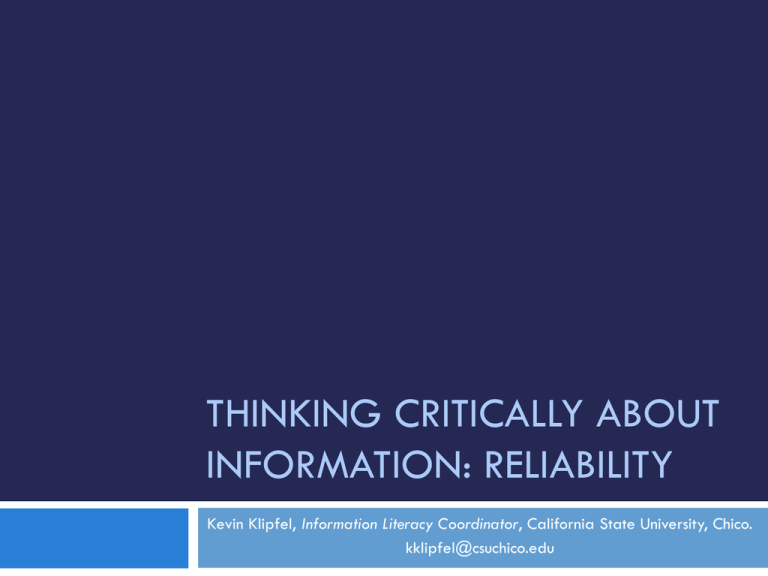
THINKING CRITICALLY ABOUT INFORMATION: RELIABILITY Kevin Klipfel, Information Literacy Coordinator, California State University, Chico. kklipfel@csuchico.edu Thinking Critically About Sources Is this source reliable? Is this the best source for my current purposes? Scholarly vs. “Popular” Sources Style “Popular” Articles “Scholarly” Articles Written by? Non-Experts (Usually. For example, a newspaper or magazine reporter.) Experts in the field (For example: a professor or research scientist.) Written for? A general audience Other experts in the field Written How? General, “Everyday” language Technical, “Scholarly” language Scholarly vs. “Popular” Sources Reliability “Popular” Articles “Scholarly” Articles Editorial Review? Limited – Non-expert Rigorous – “Peer Reviewed” by other scholars References? Not Usually – though sometimes the article will be based on scholarship that is mentioned in the article Yes – most claims the author makes are explicitly verified through footnotes and citations Trustworthy? It depends - look for articles based in scholarship) Infallible? No. But pretty much as good as it gets “Scholarly” Articles and Reliability Scholarly articles are typically preferred for research because they’re the most likely to be reliable or trustworthy. You can easily verify what they say (with footnotes, references, etc.). They provide empirical evidence for the stuff they say (especially in the natural and social sciences). They argue, using the rules of logic, for the stuff they say (especially in the humanities). Other Types of Sources Other types of don’t necessarily do this: Editorials may just express the options of an editor (without being backed by reasons and verifiable evidence). Popular sources (like magazine articles) may not be peer reviewed and do not usually provide references. Television and political pundits– how “scholarly” are they”? Reliability Factors: Verifiability Verifiability: maybe the most important criterion. Can I check (i.e. “verify”) what this author is saying. Are they providing evidence for their claims. Are they arguing for their positions? Is the evidence they use in support of their arguments good evidence? Are their arguments logically sound? Underlying question: Is the author merely stating their opinions or is there good reason to believe what they say? Currency: Is this Source Relevant? How recent is the source? Have there been new breakthroughs on this subject since my article has been written? If not, the article is probably current. Reliability Factors: Pedigree Who wrote it? What is the affiliation of the author? A university? Newspaper? Anonymous blogger? Where does the article appear? Scholarly journal? Is it peer reviewed? Is it a top journal in its field? Pedigree: Top Journals Is it Peer Reviewed? There’s no way to know for sure just by looking at an article. The most sure way you can find out is by using one of our library resources: Ulrich’s Web. With books, the best thing to do is see if it was published by a reputable academic press (e.g., University of California, Oxford University Press, etc.). If you’re having trouble figuring out if a book or an article is peer-reviewed, the best thing to do is ask a librarian. Reliability: A Matter of Degree The best way to think of reliability is that reliability falls on a continuum. Tastiness … A Continuum. Eating In-N-Out Burger! PB & J Reliability … A Continuum. Peer Reviewed “Popular” Articles Based in Research Reliability Continuum … with examples. Article from OK Journal in field Popular article citing lots of scientific studies Peer Reviewed Article from Top Journal in field That Cosmo Article Contact a Librarian And if you’re having any trouble evaluating information, don’t forget to contact a librarian: we’re more than happy to help! For questions about this module, or how to incorporate this module into specific courses, contact: Kevin Klipfel, Information Literacy Coordinator, California State University, Chico. Contact: kklipfel@csuchico.edu
